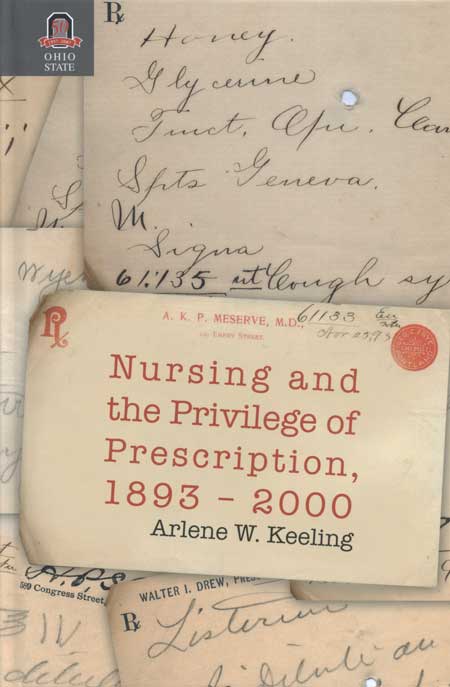|
Lavinia Dock Award for Best Book 2007 American Association for the History of Nursing Nursing and the Privilege of Prescription, 1893–2000Arlene W. KeelingWomen, Gender, and Health |
 3/22/07 Medical History; Medical/Nursing/General; History/U.S./20th century 218 pp. 6x9  $57.95 cloth 978-0-8142-1050-5 Add cloth to shopping cart $21.95 paper 978-0-8142-5241-3 Add paper to shopping cart $14.95 CD 978-0-8142-9130-6 Add CD to shopping cart Shopping Cart Instructions Review/Change Shopping Cart & Check-out | |||
|
“The book’s most important contribution will be that it describes what nurses did for clients, their actual activities that required advanced knowledge and skill, as there was more than just ‘caring’ as noted in popular advertisements today.” —Barbra Mann Wall, author of Unlikely Entrepreneurs: Catholic Sisters and the Hospital Marketplace, 1865–1925 “The whole notion of prescriptive authority is currently one of the significant and at times contentious issues in American health care. In Nursing and the Privilege of Prescription, Arlene W. Keeling provides a significant history of a very important, relevant and timely topic in twentieth-century American nursing.” —Patricia D’Antonio, Editor, The Nursing History Review Considerable controversy exists at the state and national level both within and among the professions of medicine, nursing, and pharmacy concerning the issue of granting and/or expanding the privilege of prescription to nurses. Arlene Keeling identifies and describes the informal and formal roles nurses played over the course of the twentieth century in dispensing, furnishing, and prescribing medications. The book is built around a series of case studies representing diverse geographic areas of the United States during different decades. The major thesis of Nursing and the Privilege of Prescription, 1893–2000 is that the amount of freedom nurses have had with regard to medications has been dependent on the particular setting in which they practiced, on individual practice negotiations between physicians and nurses at the grassroots level, and on the level of trust that developed between them. Even before they had legal prescriptive authority, nurses safely and effectively administered drugs at various times and places throughout the century. Providing care in underserved areas of the country—in urban slums, in the remote hollows of Appalachia, and on Indian reservations, nurses offered access to care for many who would otherwise have been denied it. The struggle between organized medicine and nursing over where, to whom, and in what circumstances a practitioner is licensed to dispense, furnish, or prescribe drugs is the central tension of the book. What is clear throughout this history is that the “elusive and fine line” between medicine and nursing is fluid, especially in times and places where nurses are particularly needed. Nursing and the Privilege of Prescription, 1893–2000 provides historical data that could inform health policy today. Arlene W. Keeling is the Centennial Distinguished Professor of Nursing, Director, the Center for Nursing Historical Inquiry, and
Director, the Acute Care Nurse Practitioner Program at the University of Virginia, School of Nursing. | ||||

